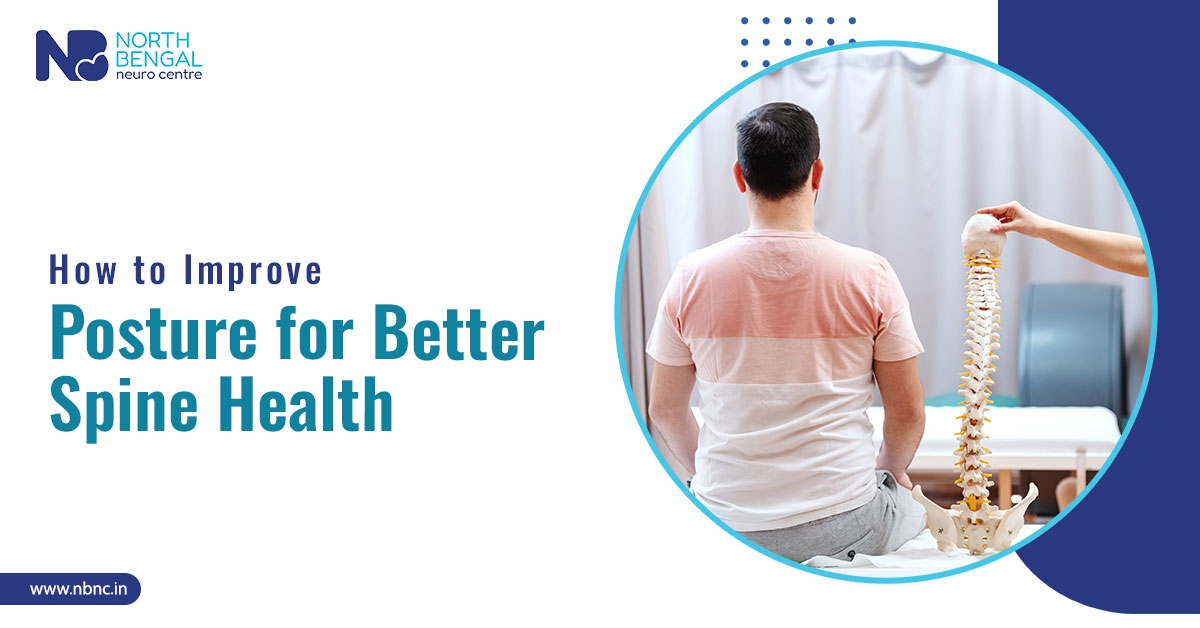The nervous system is the most important part of the body, and it controls its functions and movements. There are two types of the nervous system; the Central Nervous System which comprises the brain and spinal cord and the Peripheral Nervous System which lies outside the brain and spinal cord.
A healthy nervous system is important since it controls the functions of the body. This system helps to control our sensations, body movements, thoughts, and communication. Regular exercise plays a vital role in maintaining its functions since it helps to increase blood flow to the brain. This ensures that the brain is getting enough nutrients and oxygen, which helps in its proper functions.
Regular physical activity, such as exercise, has various advantages and can enhance brain functioning. This activity regulates angiogenesis and changes the structure of the cortex, which helps improve neuroplasticity. Physical activity also helps to reduce stress by releasing endorphins, a hormone that makes you feel good and relaxes your mood. It also helps you to keep your distance from negative thoughts.
Why Exercise is a Game-Changer for Your Nervous System

-
The Science Behind It
Neurogenesis is essential for the brain for several reasons; like memorizing things effectively and repairing the damage caused to the brain. Physical activities promote neurogenesis by releasing BNDF, a kind of protein that enhances the growth of new neurons. When we do regular exercise, it helps to strengthen neural pathways by improving connections among brain cells and improves overall performance.
- Personalized Benefits
Exercise is that physical activity which helps to improve the health of the nervous system. If an individual is facing different neurological conditions like ADHD, Depression and multiple sclerosis then he/she can do specific types of exercise to recover quickly.
1. ADHD: A type of neurological disorder that affects an individual’s ability to control their behaviour, which can impact their overall performance. Exercises like running, cycling and swimming will be beneficial for a person facing this disorder.
2. Depression: This is one of the most common types of disorder. An individual facing depression may feel difficulty in sleeping and concentrating, and in some cases may try to harm himself. However, you can try various exercises like walking or you can keep yourself engaged in regular activities to deal with it.
3. Multiple sclerosis: Another type of disorder which affects your central nervous system. Exercises like swimming, cycling, and other posture exercises will be beneficial in order to deal with it.
- Exercise as a Neuroprotective Strategy
Exercise helps in preventing age-related cognitive decline and neurodegenerative diseases in various ways including:
1. By doing this physical activity you can slow the progression of various neurological diseases.
2. Exercise is beneficial in maintaining the overall health of a brain, by reducing stress and anxiety.
3. By doing various exercises it helps to promote neuroplasticity by enhancing the growth of various neurotrophic cells.
1. Yoga: A Mind-Body Symphony for Neuro Health

- Unique Angle
Yoga is a kind of physical activity that helps to maintain the balance between mind and body by doing various yoga asanas. Yoga reduces cortisol levels, improves parasympathetic nervous system activity and enhances neuroplasticity by promoting relaxation and enhancing nerve regeneration.

- Key Poses for Brain Health
There are various yoga poses which are poses known to activate brain regions involved in relaxation and focus. The two essential yoga poses are as follows:
1. Tree pose:
Vrikshasana, also known as tree pose, is a type of yoga asana that enhances the focus and balance of the body. To do this asana you have to stand erect, balance your body with your left leg and place the right foot inside of your left thigh.
2. Downward Dog:
Adho Mukha Svanasana, also known as Downward Dog pose, is another type of asana that helps improve blood circulation throughout the body. To do this asana you have to get down on all fours, lift your knees in a v shape, extend your spine, hold your body position and breathe properly
2. Walking: A Simple Way to Boost Brain Health

Walking is simple and one of the most effective ways to boost brain health. This promotes circulation and reduces brain fog by increasing the blood flow to the brain and delivering essential nutrients and oxygen to nerves boosting the mood and overall brain health. You can start with a 15 15-minute walk and slowly increase the duration day by day.
3. Tai Chi: Gentle Movements for Better Neuro Function

Tai Chi is a type of exercise that can be done by combining various meditative movements with Chinese martial arts. This improves balance, mental clarity, and relaxation by improving concentration, enhances the concentration between mind and body and reduces stress
The neurological benefits of slow, controlled movements and breathing techniques are that they activate the relaxation response that calms you down and reduces stress and anxiety.
4. Resistance Training: Strengthen the Nervous System

Weight training has both negative and positive impacts on the nervous system and neuroplasticity. On one hand, it is beneficial in neuroplasticity and helps to improve coordination, increase muscle strength, and it helps to improve the ability to tolerate mental fatigue. While on the other hand weight training can cause injury to the nervous system, and other intensive exercises may have a negative impact on the nervous system.
Resistance Exercise can improve neural connections and cognitive function by enhancing the processing speed of the brain. Also, resistance training led to transmitting the signal from brain to body in an effective way leading to quicker and well-coordinated body movements.
5. Aerobic Exercise: Elevating Brain Activity

Aerobic activities like running, cycling, and swimming have a positive impact on brain health in various ways;
- Running: This activity helps to improve your mood, reduce depression and anxiety levels, and help you to focus on a particular task effectively.
- Cycling: This activity helps to reduce stress, and boost the function of the mind.
- Swimming: By doing this activity you can have a peaceful and relaxing mind which helps you to deal with stress.
Aerobic exercises also help to create new neural connections by enhancing the production of new neurons in the brain which helps to boost the function of the brain. Exercise also helps to reduce stress by promoting a peaceful mind and improving focus.
6. Stretching: Improve Flexibility and Blood Flow to the Brain

Stretching helps to reduce the tension and enhances the circulation of blood by reducing muscle tension, improving the flexibility and posture of the body. This helps the body’s muscles to contrast and stretch effectively. This ensures that muscle gets oxygen and other nutrients to function properly.
Regular stretching supports the health of nerves and muscles by ensuring smooth nerve-muscle coordination. This improvement in coordination and balance of muscles and nerves is particularly beneficial for various activities, as advised by our neurologist in Siliguri for maintaining a healthy nervous system.
7. Swimming: Total Body and Brain Health

- Swimming has various benefits for the functions of the nervous system including;
- Swimming results in improved memory functions
- In order to do the swimming activity, there is the constant movement of your body muscles which helps you to relax and later leads you to a peaceful sleep.
- Swimming helps to release endorphins which make you feel good. By doing this activity you can also reduce stress and anxiety by improving your mood.
There are various water exercises which help you to provide relaxing mind flexibility, and improve mental clarity. While you swim you are in the water for a long time which helps you to maintain a calm state of mind. Swimming is one of the activities since your entire body remains in constant movement, which improves flexibility. Swimming also helps you to learn, store information, and helps you to recall easily improving overall mental clarity.
8. Meditation: A Mindful Exercise for Nervous System Health

When we meditate it helps to focus the body and mind in order to achieve a calm mind, improve our awareness, reduce stress, and also enhance neuroplasticity. Now let’s discuss each one of them in some points;
- Reduce stress: By doing meditation, it helps to calm your mind, improve your focus, and make you feel relaxed which helps you to deal with stress.
- Calms your mind: When you meditate it helps you to focus on one particular thing, and makes you think clearly. Meditation also helps you to get rid of negative thoughts that stress your mind.
- Enhances neuroplasticity: A mindful exercise that helps you to enhance the growth of nerve cells which results in effective connectivity between brain and body.
The neurological benefits of mindful practices have various advantages. Study shows that when you meditate you have minimal chances to get into depression and stress. Also when you do meditation it helps to improve your concentration level and you may witness long-term positive changes in the brain.
9. Dancing: Boosting Brain Power with Movement
Dancing is a form of activity which helps in controlling the body movements by following the rhythm of music. When you dance it improves the flow of blood to the brain, improving the physical coordination of the body. This helps in better coordination among the brain and the body.
The connection between rhythm and brain health has several advantages including; strengthening the coordination between body and mind with musical rhythms. Also when you do the dancing activity this can be beneficial during brain health and prevents it from neurological disorders.
10. Cycling: Improve Cognitive Performance and Reduce Stress

Cycling is a type of activity which has various mental health benefits;
- Reducing stress: When you do this activity you have to maintain the concentration level which can reduce the stress and help you to focus.
- Creative Thinking: When you do cycling regularly or participate in any competition you have to find new paths which help the brain’s problem-solving ability and make your thinking creative.
- Improving mood: While cycling or doing other acrobatic activities it helps you to feel good, since your brain releases endorphins, improving your mood.
Cycling enhances the smooth circulation of blood to the brain, enhancing learning ability and sharp judgments. When you do the cycling activity it helps you to think with clarity and also enhances your thinking ability. Cycling can also improve your overall cognitive functions by improving connectivity, promoting the growth of new cells, reducing stress and you can think more clearly.
11. Pilates: Strengthening Core and Nervous System

Pilates is a type of mind-body exercise which strengthens the balance, strength and flexibility of the body. Now let’s discuss how Pilates improves body control, and posture, and manages stress through some points:
- Improves body control: This exercise primarily focuses on enhancing the control of the body by stretching and strengthening of body muscles.
- Maintain posture: Pilates strengthen the core muscles like abdomens, spines and joints of the body which helps in maintaining a proper body posture.
There are various neurological benefits of Pilates for coordination and mental health; it helps in the functioning of the brain, promotes the growth of brain cells, reduces stress and anxiety, and improves your mood.
12. Mindful Breathing Exercises: Strengthening the Nervous System

Mindful breathing exercise has a major impact on the parasympathetic nervous system. It helps to calm the body, lower the heart rate, and reduce anxiety.
The deep belly breathing technique helps to reduce stress by activating the nerve vagus which triggers the relaxation response of the body
Faq:
What exercise is best for the nervous system?
There are various exercises which improve the overall health of the nervous system. Regular exercise like walking, stretching, cycling, and swimming is considered best for the nervous system.
What exercises repair nerves?
There are various acrobatic exercises like swimming, cycling, and walking that help to repair the nerve cells. You can also do Yoga, stretching, and other activities that increase the blood flow in the brain promoting the regeneration of nerve cells.
How do I make my nervous system strong?
There are various ways you can make your nervous system strong. You can exercise regularly, get enough sleep, have a balanced diet, practice deep breathing, and do yoga and meditation. By following this you can ensure a healthy nervous system.
How to fix a weak nervous system?
If you want to fix a weak nervous system you have to take some necessary steps like having the foods which are good for your nervous system, and doing acrobatic exercises. If you experience sudden changes in your health such as muscle weakness, changes in memory or behaviour you should see a doctor.
Can exercise heal the nervous system?
One of the best ways to heal your nervous system is by doing exercises. By doing exercises you can promote nerve regeneration, improve blood flow, and help you deal with various neuropathic pain.
What is the best brain exercise?
The best brain exercise is puzzle and mind games. Games that use logic, math, words and other skills help to improve your memory and enhance processing speed. You can play various games like puzzles. Sudoku, crossword puzzles etc
What are 7 foods that may heal nerve damage?
There are various food items which are beneficial for your nerves and help to heal nerve damage. The foods you can try are eggs, avocados, green leafy vegetables, fish, pumpkin seeds, nuts, and berries. All these foods provide essential nutrients to the nervous system.
What heals nerves faster?
There are various natural therapies, like exercises, physical therapies and a healthy diet which help the nerves to heal faster. You can have foods which are rich in vitamin, potassium, and other antioxidants that help to improve nerve health.
Can exercise reduce nerve damage?
Yes, exercises can reduce nerve damage. You can do various exercises which help in the regeneration of nerve cells, improve their functions and relieve pain. But you need to start your exercise gradually and you can increase its duration day by day
Comments (0)







